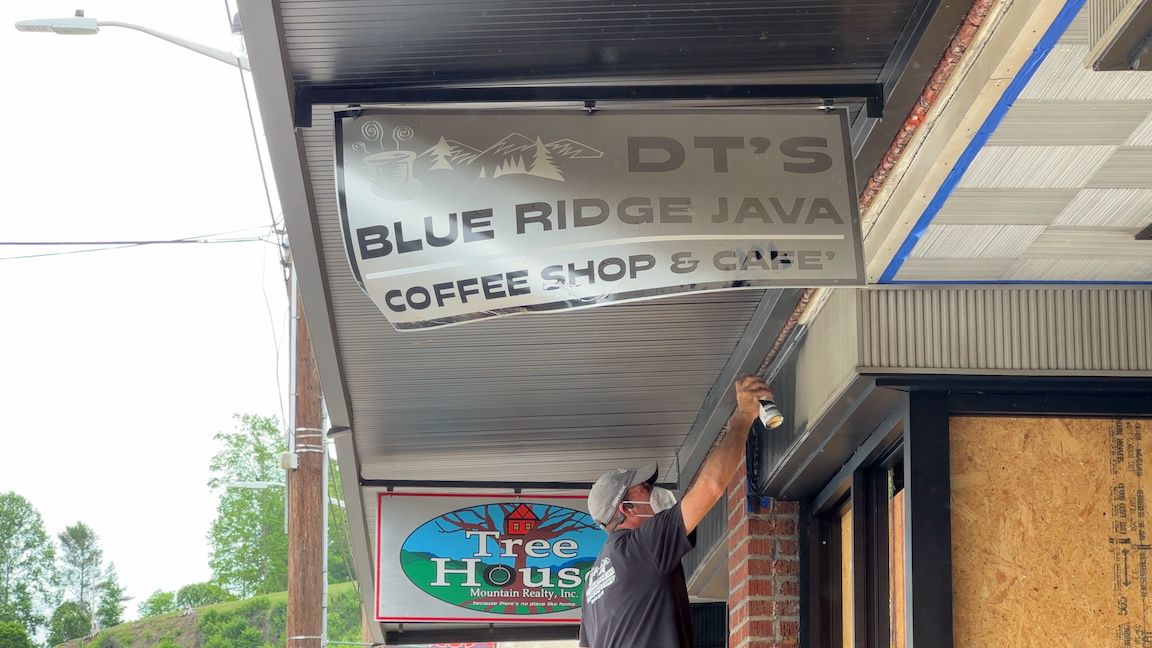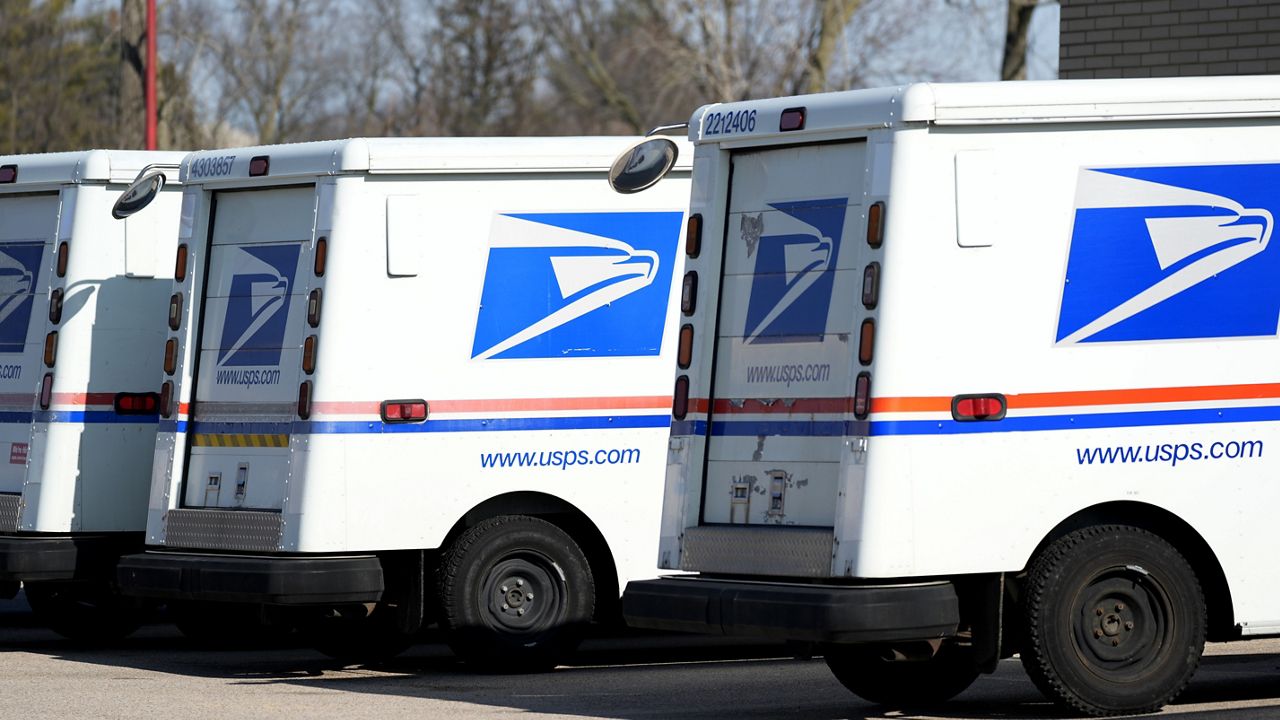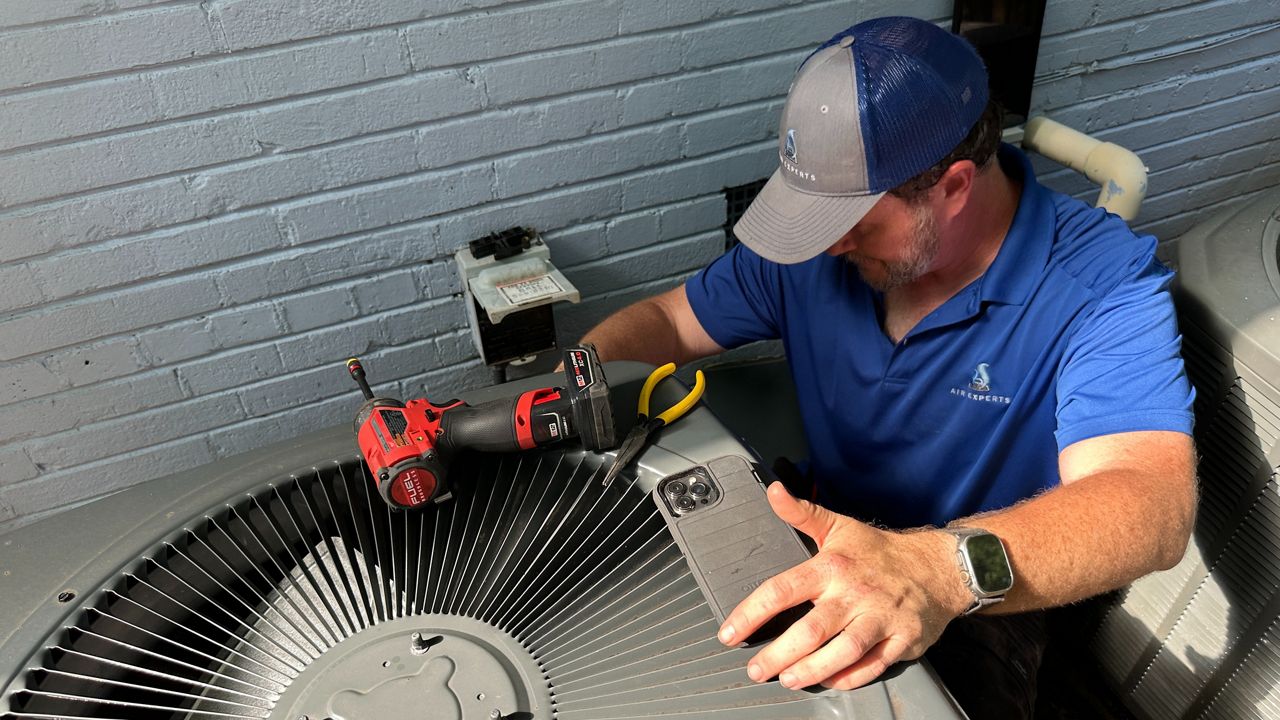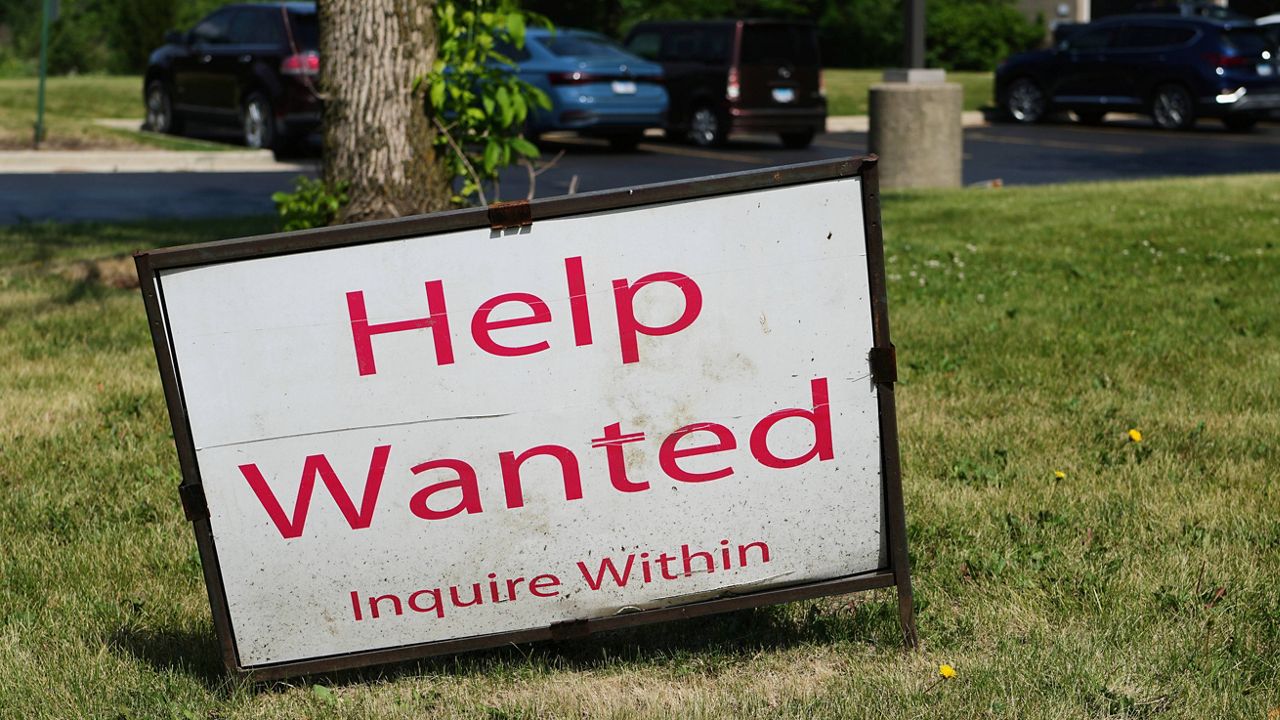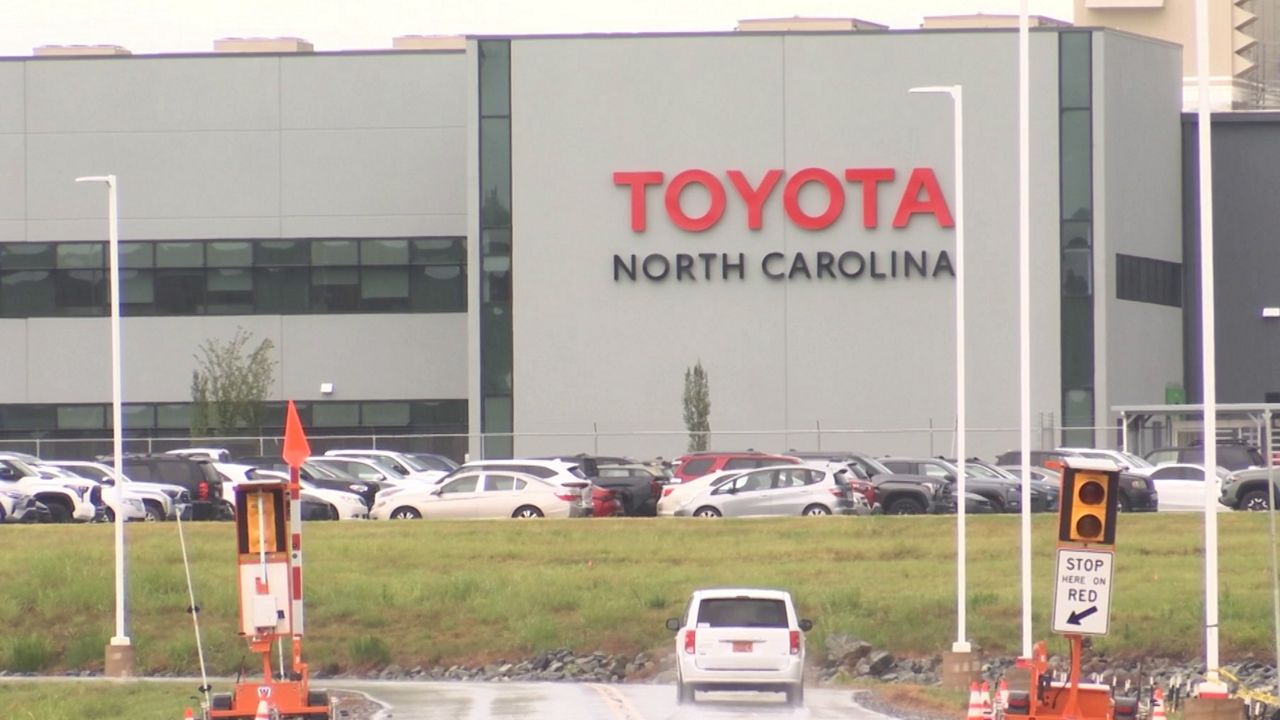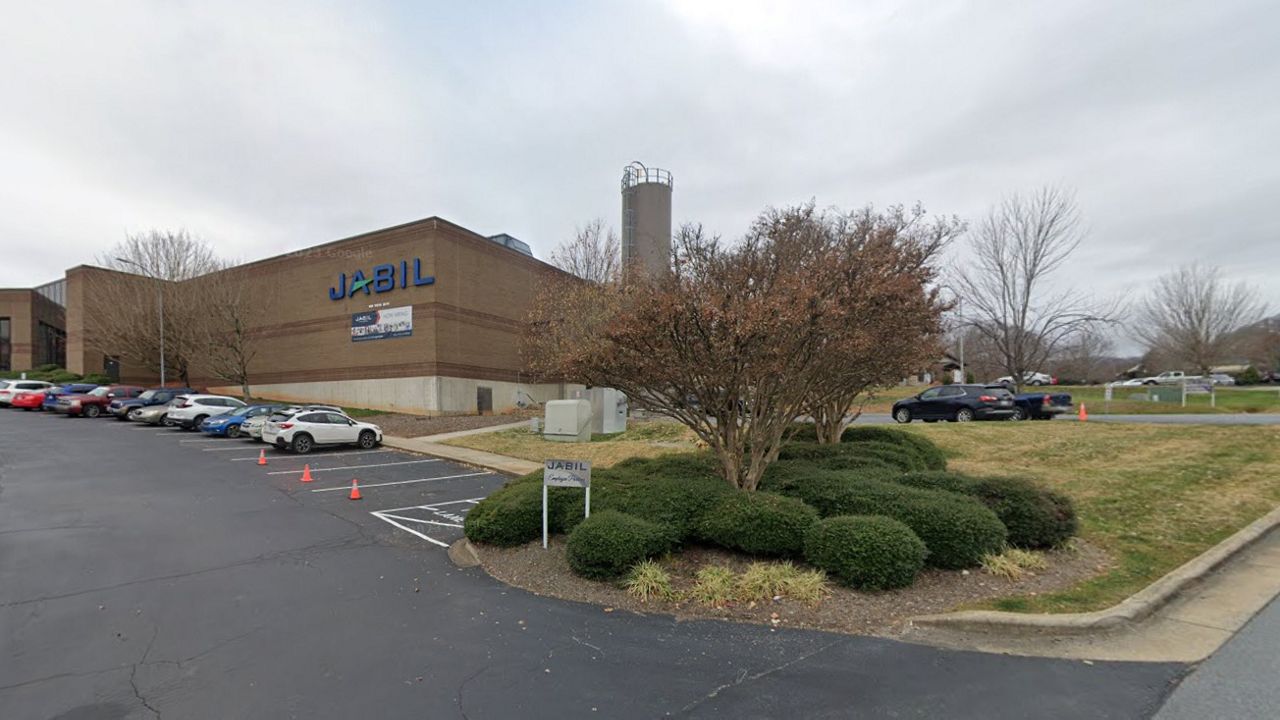DURHAM, N.C. — Navigating global tariffs can be frustrating, especially for business owners.
A three-judge panel for the U.S. Court of International Trade paused tariffs last week. President Donald Trump's administration wasted no time filing an appeal that led a federal appeals court to halt the ruling.
The Federal Reserve Bank’s economic outlook for North Carolina shows marginal growth in some industries except the manufacturing sector, which lost 5,300 jobs on an annual basis.
Meanwhile, the statewide trade, transportation and utilities industry grew by more than a percentage point year-to-year and added 4,000 jobs.
These two economic data points reveal a mixed bag for North Carolina business owners looking to thrive in the transportation sector without relying on an abundance of parts made in the state.
To better understand how entrepreneurs manage the uncertainty, Travis Brisbon, 47, rolled out the business plans for his transportation company in Durham during an ever-shifting global economy.
“It's challenging, but also I think there's a lot of opportunity,” Brisbon said.
He is the founder and CEO of the Brisbon Transportation Group, the parent company of four subsidiaries. His fleet of vehicles serves clients like corporate executives and people dealing with health needs. But the global trade war, sparked by Trump's tariff's, is pushing up costs.
“You really, really learn how to plan and forecast based on the uncertainty that we're seeing,” Brisbon said.“You really, really learn how to plan and forecast based on the uncertainty that we're seeing,” Brisbon said.
“It just makes it that much more difficult,” he said. "It’s going to affect the small business."
Jeffrey Dorfman is an economist at North Carolina State University who has closely monitored the impact of tariffs on different industries.
“It's very unsettling,” Dorfman said. “We do not normally make economic policy by the whims of the president.”
He said even if Trump's plan to bring more companies back to the United States, including auto parts makers, works to some degree, it doesn’t equate to a mass creation of jobs. It could take years before employers like Brisbon see a benefit, he said.
“There's just never going to be a huge increase in employment in manufacturing in the U.S., even if we get an increase in output. It will be so automated there won't be that many jobs,” Dorfman said. “Even if we bring the manufacturing back here over time, it's going to be done by fewer and fewer people and more and more machines.”
Dorfman said tariffs for steel and aluminum will remain because they fall under another category.
“Those were done under different laws based on either threats to national security or foreign countries that are using unfair trade practices, either subsidizing their industries or dumping, selling below production costs, something like that," Dorfman said. "So those are still in place and were unaffected by the ruling."
There’s also no guarantee on inventory from suppliers.
“More often than not, there are already constraints on parts,” Brisbon said.
Recent rulings at the federal court level didn’t end Trump’s 25% tariffs on a vast amount of imported auto parts, including for cars used for Brisbon’s corporate chauffeur service including a Mercedes model, which Brisbon said costs at least $80,000 before tariffs.
“Probably add another $5,000-$7,000 for MSRP (manufacturer suggested retail price) if I were to buy that same vehicle now,” Brisbon said.
The MSRP is commonly known as the sticker price. He said they already waited for about four weeks to get parts for some cars. Brisbon said his service manager has urged him to stockpile inventory.
“We need to start stocking some of these things because the suppliers say that the cost is going to double, if not triple,” Brisbon said.
Suppliers are not sugarcoating the impact, either. Two new motor coaches Brisbon agreed to purchase last fall will arrive soon with an increased cost of $12,500 each. He provided copies of those receipts.
There are also other areas of concern to consider for the vans used to transport people with physical disabilities. Brisbon said they have a contract to transport Medicaid recipients in Durham County through the Wisdom Care Transportation company.
“Any increase in cost to them is going to impact them significantly,” Brisbon said, referring to the Durham County Department of Public Health.
It’s why Brisbon refused to share a greater cost with a municipal agency relying on him to transport a vulnerable population.
“Whatever cost impacts that we see, we are going to absorb that so it doesn’t affect our Medicaid recipients,” he said. “Any time that there is an additional cost that are passed onto customers, we want to be effective communicators, but when they are already dealing with constraints in their personal lives and organizations, it’s just tough to pass on some of those costs.”
A new report from the Anderson Economic Group shows some vehicles could see prices increase by more than $15,000.
No matter the hurdles, Brisbon said the work gives him a reason to get out of bed in the morning.
“I think the first thing that got me is that I love logistics. I love moving things. It’s always been a passion of mine,” Brisbon said.
“The effect of the tariff is a trickle down effect, right?" he said. "It’s going to affect the small business.”






